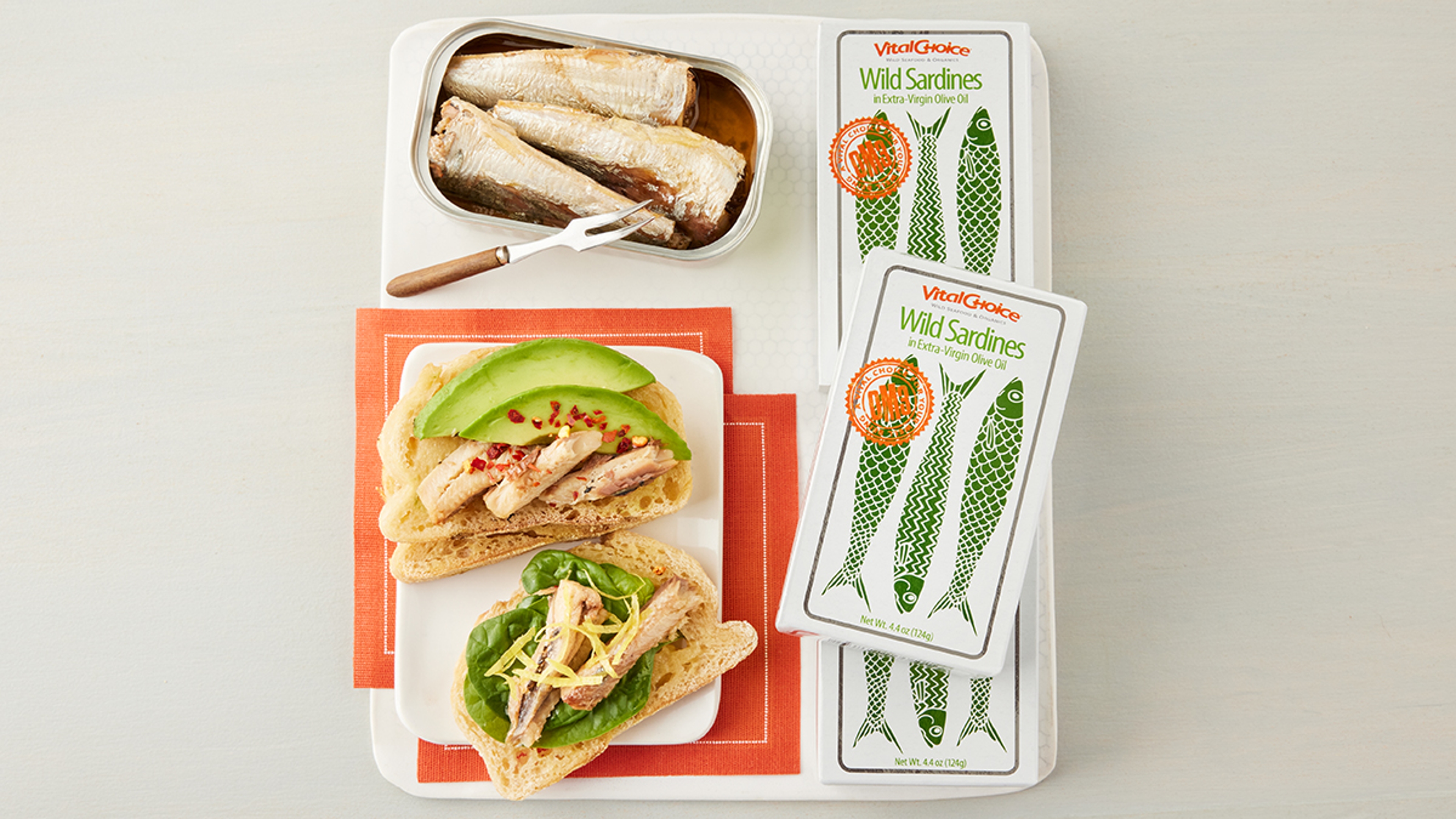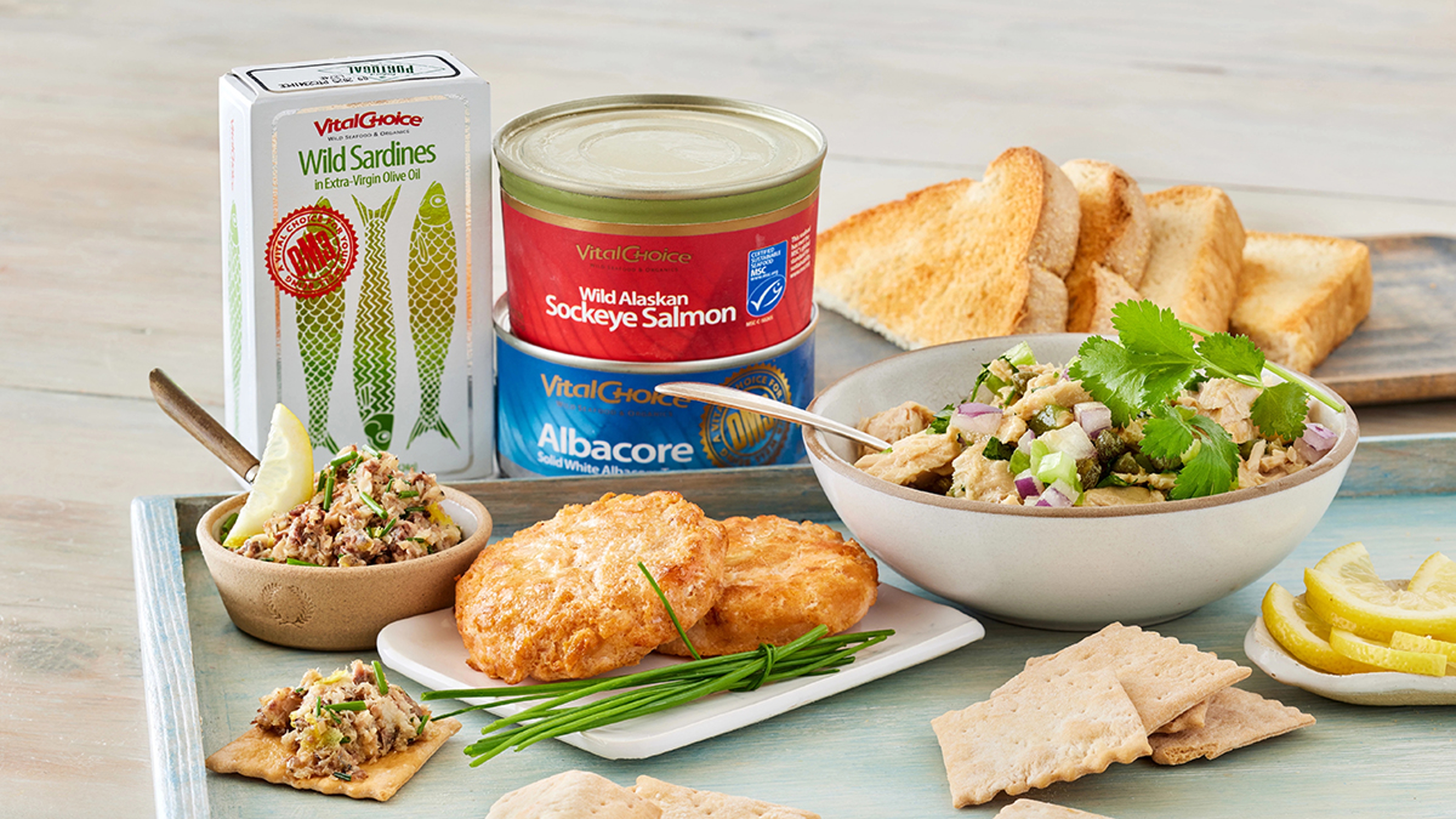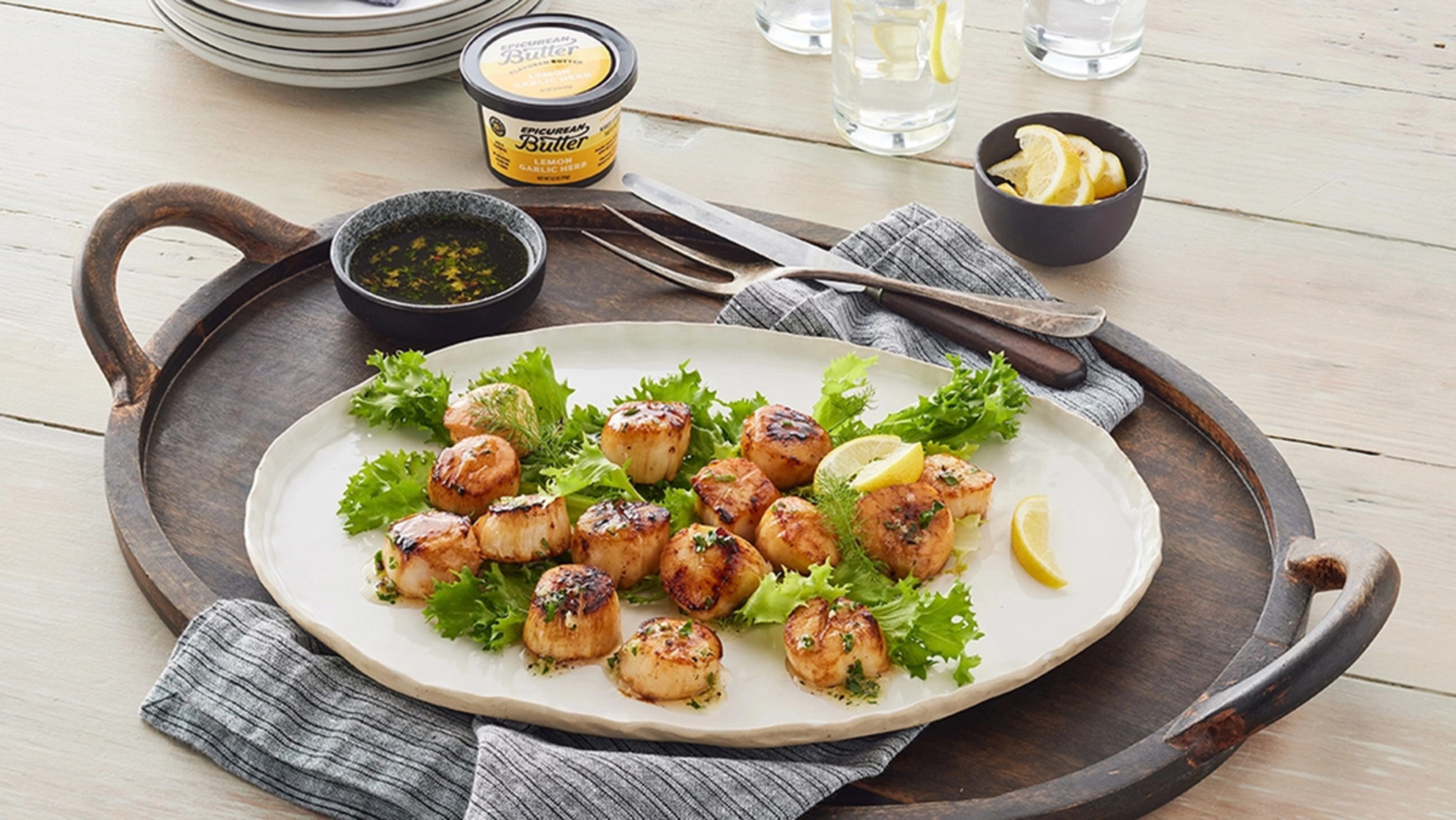The Great Seafood Debate: Should We Be Eating Like a Salmon?
Rather than filling our plates with salmon, we may want to fill it with what they’re eating instead.
Oct 14, 2024
It’s moist and buttery.
Savory and subtly briny.
Flakey, juicy, bold, fresh, and clean.
From a flavor profile alone, there are so many reasons to love salmon, whether it’s wild Alaskan sockeye, Pacific king, or coho. Factor in this delicacy’s impressive nutritional profile — its ample supply of heart-healthy omega-3 fatty acids, its oodles of vitamins D, B12, B6, and selenium, plus all that lean protein — and it’s easy to see why salmon is considered a superfood.
Because salmon is such a rich, nutrient-dense powerhouse, many health experts recommend eating at least a couple servings of it a week. Studies show that doing so can improve heart health, reduce levels of inflammation in the body, improve brain function, boost mood, and promote muscle growth.
READ MORE: Are All Salmon Created Equal?
But while the power and potency of salmon in our diet is unassailable, a new study published in the journal Nature Food also raises an interesting question: For maximum health and wellness, might we actually be better off eating like a salmon instead of just eating the fish itself?

Inside the research
In this recently released study, researchers from the University of Cambridge, Lancaster University, University of Stirling, and the University of Aberdeen suggest that since wild salmon feed almost entirely on small wild fish, such as mackerel, anchovies, and herring, we might be better off doing the same. In other words, instead of eating salmon for the nutrients it provides, we should consider augmenting our diets with the same foods that salmon eat to grow and thrive — and by doing so, get those nutrients directly from their natural source.
According to nutritionist Chris Mohr, Ph.D., R.D., owner of the popular health and wellness consulting group Mohr Results, the idea behind the research is solid.
READ MORE: The Magic of Mackerel
“Smaller fish like those mentioned in the study are all fantastic,” Mohr says. “They’re a rich source of omega-3 fats and other difficult-to-get nutrients, like vitamin D. They’re also surely a more sustainable source of nutrition, and can be more affordable and more practical for a lot of people. Tinned options like these make enjoying seafood more approachable for many and are equally as great as salmon.”
His advice? Don’t focus on either “eating more salmon” or trying to eat “like a salmon” exclusively. Instead, do both. “These types of fish are not better or worse than one another,” Mohr stresses, “but equally amazing. When planning the healthiest meal possible, it’s best to consume more fish overall.”
And if you do want to adjust your diet, Mohr says consider replacing another protein source — such as chicken, pork, or beef — with seafood a couple of times a week.

Adding more fish to your menu
While there are countless ways for even novice chefs to easily add more salmon to their weekly meal plan, eating more tinned fish can take a bit more ingenuity and inspiration — but that doesn’t mean it’s not worth the effort.
Take sardines, for starters. You may already be in the habit of adding these briny wonders to Caesar salad or spreading them on a homemade pizza. But how about starting your day with a plate of olive oil and red-pepper flavored sardines on toast? Simply char some crusty sourdough or ciabatta until golden brown. Then, spread a layer of butter or cream cheese on those warm bread slices and top with drained sardines, lemon juice, and a sprinkle of chopped parsley and black pepper.
READ MORE: Anchovies Deserve Respect
You can also add sardines to spaghetti in place of meatballs. Just sear the fish in a hot skillet with some olive oil and garlic, breaking them up with a fork as they warm. Then, toss them with cooked spaghetti and lemon juice. Add some marinara sauce if you want, or skip it and just keep your dish simple and classic. (Or, use Wild Sardines in Organic Tomato Sauce and your sauce is already good to go.)
Sardines are also fantastic in fish tacos. Just break the fish into bite-sized pieces and then generously pile it into a warm corn or flour tortilla. To complete your taco, add mashed avocado, lime juice, diced red pepper, chopped cilantro, and a spoonful of your favorite salsa.
Like sardines, tinned herring is tasty and versatile, whether you like yours plain, pickled, or wonderfully smoked. Herring and rye is a classic Scandinavian snack called smørrebrød. To make this simple, open-faced sandwich, grab a loaf of tangy sourdough rye bread. Then, top individual slices with a generous layer of butter or mustard, a beautifully arranged mound of herring, and some diced red onions or sliced dill pickles. Feeling fancy? Add a simple garnish of freshly chopped dill, a few capers, and a squeeze of lemon juice. It’s very Danish…and delish!
Tinned herring is also delectable folded into homemade potato salad, blended with cream cheese to make a hearty dip for crackers or a thinly sliced baguette, or tossed with diced beets, apple, red onion, and sour cream as a zesty side.
As for tinned mackerel, try using a few pieces to elevate your next batch of avocado toast. It’s also sensational tossed with mixed greens, sliced cucumber, red onion, and a Dijon mustard dressing as a side salad that could stand as a meal on its own.
Mackerel can also be your new secret ingredient when making stuffed bell peppers — simply mix it with your regular blend of rice or quinoa, plus tomatoes, cheese, and herbs. For brunch, try combining the fish with diced, cooked sweet potatoes, bell pepper, and onions. Then, complete that seasonal hash by adding some fried or poached eggs on top before serving.
Or, fight off a winter chill with a comforting mackerel and white bean stew. Combine sauteed onions, canned diced tomatoes, chicken broth, and drained white beans in a large pot and bring to a simmer. Then, just before serving, stir in some drained, tinned mackerel, smoked paprika, and a pinch of red pepper flakes. Pair with crusty bread and dig in!
Sorry, salmon. For these hearty and crave-worthy dishes, you’ve got the day off!









